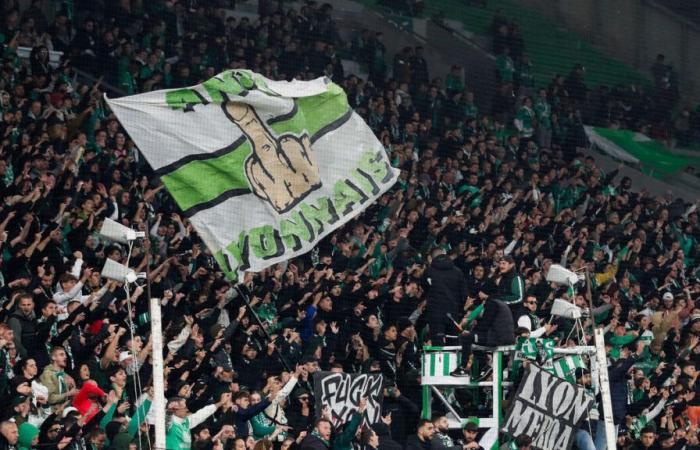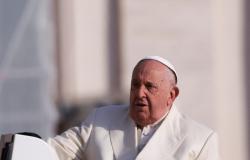
These days, the spotlight seems less on the football fields than on the stands, where every word is scrutinized. After yet another intense political-media episode which followed the PSG-Strasbourg match on October 19, with an anti-Marseillais song including homophobic insults chanted for long minutes by the Parc des Princes, the songs of the same style continue to resonate in the aisles of Ligue 1 stadiums.
This Saturday evening, it was in Saint-Étienne that a particularly vehement anti-Lyonnais chant (“We are the Stéphanois / Oh Lyonnais bunch of peeps… / To see our team win / We're all going to send you all… .”) was spotted and denounced by certain associations fighting against homophobia in football. Sunday evening, the Secretary of State for Citizenship and the Fight against Discrimination Othman Nasrou reacted on X, calling on the LFP to “explain to us why the match was not interrupted”.
On the side of the League, we are told that this song, very brief (less than 30 seconds, compared to several minutes in Paris on October 19) and which would have been sung only once at the time, had only not the subject of any report in the match report rendered by the delegate. In all likelihood, neither the delegate nor the referee heard the chant in question.
In the absence of a mention in the match report, the LFP disciplinary committee cannot make decisions, as it did recently in the case of PSG against Strasbourg. During the 2023-24 season, it distributed, the body tells us, 49 fines for cases of oral expression and banners, encompassing all types of discrimination, for a total of 130,000 euros. Customary with complaints on this subject, the Stop Homophobia association filed a new one this Monday against the LFP and DAZN following the events of this Saint-Etienne – Strasbourg.
The decision to stop the match at the discretion of the referee
As for the procedure to follow to stop the match in these situations, the League recalls that it relies on the protocol provided by Fifa and which is deployed in three stages: first an announcement made in the stadium to demand an end to the discriminatory chants (which happened in Paris), then a temporary end to the meeting and finally a definitive end.
This procedure is detailed in article 549 of the LFP competition regulations on the “match incident procedure”. It is, ultimately, at the discretion of the referee to make this type of decision: “The referee can decide to delay the kick-off of a match or to interrupt it, several times if necessary , due to serious incidents which may or may not result in players and the refereeing team returning to the locker room. The match can only start or resume if the serious incidents have stopped,” we read.
“If the typology and/or seriousness of the incident requires it, a crisis unit can be activated by the referee, the delegate or the public authority. At the end of this, the decision to definitively interrupt the match or not, or to start it or not in the event of an incident before the match, rests with the referee. However, the public authority can replace the latter to modify the final decision, only for reasons of serious risk of disturbance to public order. »





